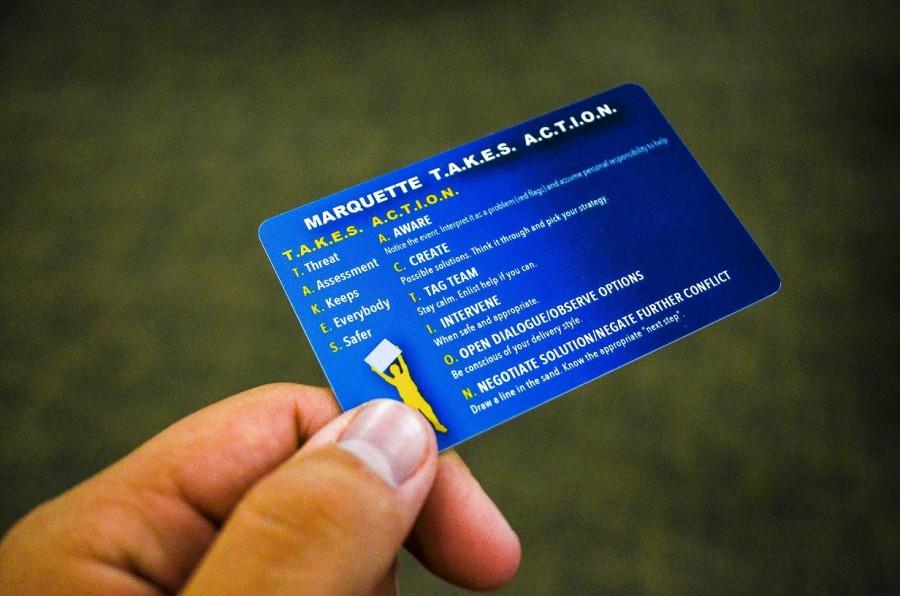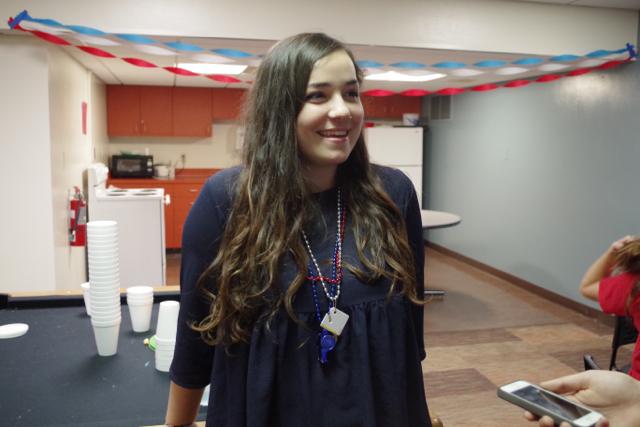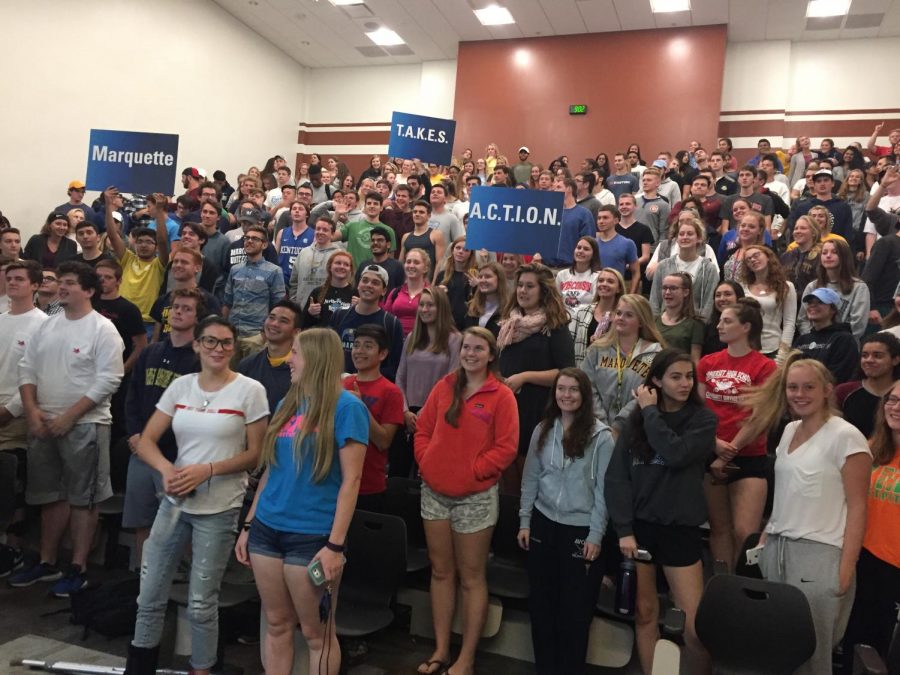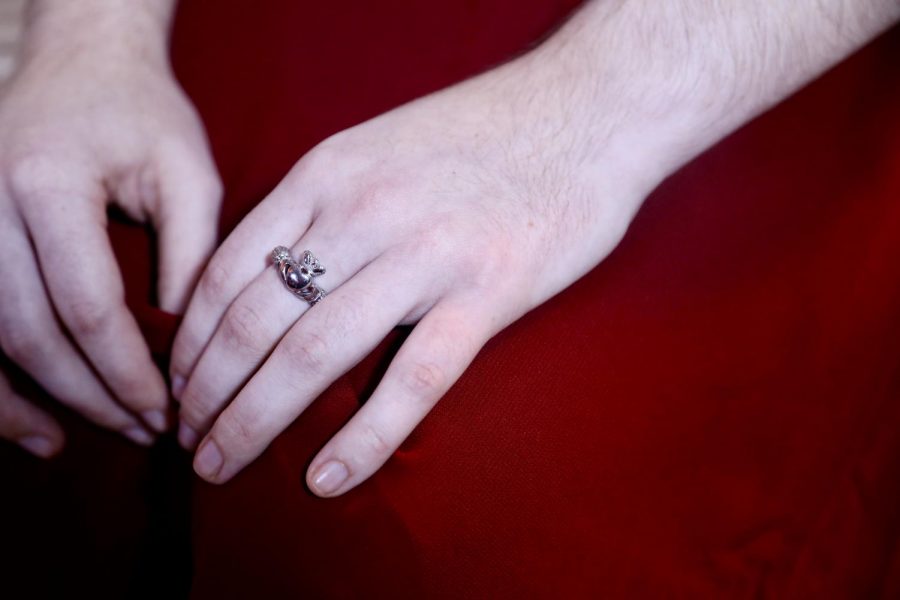The Marquette Takes Action Bystander Program is training the entire sophomore class this month on intervening in instances such as gambling, anger, intoxication, loitering and burglarizing.
“Bystander intervention training is a life skill,” Marquette Police Department Lieutenant Jill Weisensel said.
Weisensel and Sarah Johnson, coordinator for alcohol programs, teamed up to design the program in 2012. Their team is made up of several student facilitators from various grade levels.
The training stemmed from Marquette’s sexual violence prevention training that started in 2011 and included a small part about bystanders. Since then, the bystander training grew into a broader program.
“It teaches students how to recognize situations that are suspicious or going bad and how they can intervene to prevent things from getting worse,” Weisensel said.
Takes Action trained sophomores living in McCabe Hall last year as a pilot before the university authorized this year’s full-class training.
Weisensel said 1,600 people will be trained this month.
“It will be interesting to see what kind of impact that will have,” she said.
Courtney Boler, a sophomore in the College of Business Administration, went through the training last week.
“I think this training enhances the overall atmosphere of Marquette’s campus and shows what Marquette is all about,” Boler said.
Weisensel and Johnson trained 150 RAs and graduate students to train the sophomores. The hour-long training sessions take place every Tuesday and Thursday until the end of October and are divided up by residence hall and floor.
“As students, we feel like we are in our own bubble and nothing will happen to us, but we sometimes forget that we live in a city and we still need to be aware of our surroundings,” said Bridget Mountain, a sophomore in the College of Communication.
Each session involves learning the theory behind bystander intervention, communication skills and personal safety awareness skills. At the end of the sessions, students break into small groups and act out scenarios.
“They can build confidence in their skills and see how the strategies work,” Weisensel said.
The training starts and ends with an assessment to test knowledge and see how comfortable students are with intervening.
“After doing the training, it’s comforting to know that people on campus will be educated on how to help each other out if a situation comes up,” Boler said.
Students at the training sessions receive plastic, wallet-sized cards with intervention strategies and engagement phrases on them.
“We always encourage students to learn more about safety or come do a ride-along if you want to learn more about MUPD,” Weisensel said. “The more exposure you have on campus, the safer you will be in it.”
MUPD offers other safety services for students such as self-defense training and personal safety awareness training.






